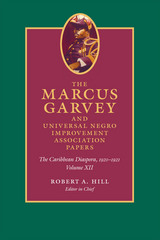
Rome, from the beginning.
Livy (Titus Livius), the great Roman historian, was born at or near Patavium (Padua) in 64 or 59 BC; he may have lived mostly in Rome but died at Patavium, in AD 12 or 17.
Livy’s only extant work is part of his history of Rome from the foundation of the city to 9 BC. Of its 142 books, we have just thirty-five, and short summaries of all the rest except two. The whole work was, long after his death, divided into Decades or series of ten. Books 1–10 we have entire; books 11–20 are lost; books 21–45 are entire, except parts of 41 and 43–45. Of the rest only fragments and the summaries remain. In splendid style Livy, a man of wide sympathies and proud of Rome’s past, presented an uncritical but clear and living narrative of Rome’s rise to greatness.
The Loeb Classical Library edition of Livy is in fourteen volumes. The last volume includes a comprehensive index.

Remains of a universal chronicle.
Diodorus Siculus, Greek historian of Agyrium in Sicily (ca. 80–20 BC), wrote forty books of world history, called Library of History, in three parts: mythical history of peoples, non-Greek and Greek, to the Trojan War; history to Alexander's death (323 BC); history to 54 BC. Of this we have complete Books 1–5 (Egyptians, Assyrians, Ethiopians, Greeks) and Books 11–20 (Greek history 480–302 BC); and fragments of the rest. He was an uncritical compiler, but used good sources and reproduced them faithfully. He is valuable for details unrecorded elsewhere, and as evidence for works now lost, especially writings of Ephorus, Apollodorus, Agatharchides, Philistus, and Timaeus.
The Loeb Classical Library edition of Diodorus Siculus is in twelve volumes.

Volume XII highlights the centrality of the Caribbean people not only to the convention, but also to the movement. The reports to the convention discussed the range of social and economic conditions obtaining in the Caribbean, particularly their impact on racial conditions. The quality of the discussions and debates were impressive. Contained in these reports are some of the earliest and most clearly enunciated statements in defense of social and political freedom in the Caribbean. These documents form an underappreciated and still underutilized record of the political awakening of Caribbean people of African descent.

Eclectic essays on ethics, education, and much else besides.
Plutarch (Plutarchus), ca. AD 45–120, was born at Chaeronea in Boeotia in central Greece, studied philosophy at Athens, and, after coming to Rome as a teacher in philosophy, was given consular rank by the emperor Trajan and a procuratorship in Greece by Hadrian. He was married and the father of one daughter and four sons. He appears as a man of kindly character and independent thought, studious and learned.
Plutarch wrote on many subjects. Most popular have always been the forty-six Parallel Lives, biographies planned to be ethical examples in pairs (in each pair, one Greek figure and one similar Roman), though the last four lives are single. All are invaluable sources of our knowledge of the lives and characters of Greek and Roman statesmen, soldiers and orators. Plutarch’s many other varied extant works, about sixty in number, are known as Moralia or Moral Essays. They are of high literary value, besides being of great use to people interested in philosophy, ethics, and religion.
The Loeb Classical Library edition of the Moralia is in fifteen volumes, volume XIII having two parts. Volume XVI is a comprehensive Index.
READERS
Browse our collection.
PUBLISHERS
See BiblioVault's publisher services.
STUDENT SERVICES
Files for college accessibility offices.
UChicago Accessibility Resources
home | accessibility | search | about | contact us
BiblioVault ® 2001 - 2024
The University of Chicago Press









